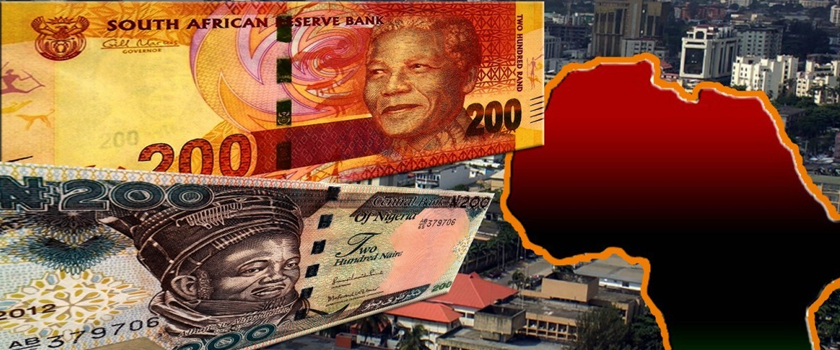2025 Offer Request a Quote Today and Grab a $50 Coupon for Free!
Gone are the days when businesses and corporations were only limited to their country of origin. Today’s world has shrunk to a global village—weaving together different nationalities, cultures, and countries and globalization has been the biggest tool in taking business operations across continents. Investors in England are funding startups in the Netherlands, who work with contractors in Japan and sell to customers in Portugal and Spain.
This is just one example of the extent to which companies have gone global. And one of the key facilitators in this process is—you guessed it right, language.
Languages such as English, Mandarin, and Russian have dominated the global landscape for as long as we can remember but these might not be the only important languages to see the light of the next century with the surfacing of other languages on the global front.
The key is to understand which of the languages are the most important and useful ones, which will open pathways for securing the greatest return on investments and which ones will lead the way to the next 50 years.
It is premature to point out which languages will be the most useful ones but here is a list of 10 languages that will prove their mettle in the vast world of languages, enabling cross-border communications and trade:
Chinese language is the new boss in town with the largest number of native speakers—nearly 982 million persons while more than 1.1 billion people know the Chinese Mandarin dialect. Mandarin is the one language that just does not miss any list of the most popular and useful languages for the future.
This is mainly due to the huge economic shift that China has gone through in the past 3 decades—from national trade to international trade ties and cross-border treaties to huge leaps in the field of science and technology. Considering the advances that China is making, it is easy to believe analysts when they say that China will become the world’s leading economy by 2050.
It is estimated that more than 235 million speakers of Portuguese are spread out across the world today. The language of the rapidly growing country of Brazil that is part of the BRICS countries is the revving engine of the future business.
Portuguese is also the primary language in Mozambique, Angola, Guinea-Bissau, East Timor, Equatorial Guinea, Macau, Cape Verde, and São Tomé and Príncipe. Under the economic influence of these regions, Portuguese is most likely to compete with English in the race to become the most profitable language in the future.
Since the democratic revolutions in Arab Spring, Arabic language has taken a huge turn from being the language of only the Emirates region to becoming the fastest growing language in the world, being spoken in more than 22 countries worldwide. The fact that it is the language of the oil-producing countries is enough to show its importance as the world’s most useful language for the future.
Of course, the current picture is equally indicative of the importance of this language, with 420 million speakers and 100 million non-native speakers in the world today. From the language spoken during setting the multi-billion dollar oil deals in Cairo to the language of stock trading in Doha and Qatar, the Arabic language is surely a golden opportunity for businesses of the future.
Ranked as the sixth most widely spoken language after Mandarin, French is the language of over 370 million speakers worldwide, which is a huge number, considering the rate at which this language is growing. Additionally, France is the sixth biggest economy in the world and continues to be the epicenter of all major businesses globally.
Being the dialects of the same language, Hindi and Urdu are both languages that are highly lucrative in the future. India is projected to be the world’s largest country by population, and Pakistan (where Urdu is the national language) occupies the 6th spot of the most populous countries of the world, with approximately 5% growth per year.
The sheer size of the population indicates how important both these languages are for commerce, trade, and business in the future and the languages that future business aspirants should be learning.
The Russian language is the primary language of more than 150 million speakers and the second language of 110 million people worldwide. It also possesses the status of official language in 38 territories. Additionally, the huge size of the Russian Federation and the Commonwealth States makes it a highly lucrative market for business expansion and getting hands-on the maximum number of customers.
Spanish is the language of 330 million speakers worldwide, and being the official language of Argentina and Mexico, two of the G20’s major economies. The language of the Latin American world, Spanish is the powerhouse of the business language of the future and is surely one of the languages that will be one of the most lucrative ones in the future.
Although learning the German language may seem like a hard task to the learners of this language, for the rest of the business community, the German language means only one thing—money.
Germany is Europe’s largest economy and the 5th largest in the world as 80 million Germans generate an astonishingly high global GDP of 4.5%--enough to prove the point that German is the most useful language for future businesses. Surely, with these estimates on the horizon, companies would be ignorant if they do not invest in learning and commercializing in German.
Another Asian language with a bright prospect is Japanese with 127 million native speakers and an equal number of non-native speakers spread out in the world. The Japanese economy is famous for its quantum leaps in the field of science and information technology and the Japanese are known around the world as being extremely industrious and hard-working.
Considering these traits, learning and doing business in the Japanese language should be included in the mission of companies globally.
Last, but not least, who is not familiar with English? It is the official language of all business transactions around the world, occupying the top pedestal in the field of languages comprehended and spoken by over 3 quarters of the world’s population. To say that English is the “language of Globalization” would not be an understatement as it has more than 350 million native speakers and a mind-blowing 500 million second-language speakers in the world.
Whether you are a small business hoping to take your business to other destinations or an entrepreneur seeking an international market for business expansion, learning and making use of the above languages is the way to open paths to the success and growth that you are aiming for.
Deciding which language is the most useful depends on your aspirations, goals, needs, and your vision of which customers to capture. But no matter which country is on your watch list, make sure you have ticked all the right boxes in learning the languages of the future.

On the Labour Day Holiday, 147,000,000 Plus Chinese people choose to travel around the country. Labour Day is one of the
Read more
There are 196 countries in the world in which 25 of them are very rich which shows that they are
Read more
dwg: It means a drawing file save format created by AutoCAD, and now has been the standard format of 2D
Read more
To sum up the publicity stance, sometimes the marketing campaigns do not have their envisioned result. When publishing the brand ads
Read more
The state of Assam is the king producer of tea in India; Dibrugarh is the hub of tea gardens in
Read more
Digital signage is the form of electronic display that shows information, advertising and other messages. Digital signage such as LCD,
Read more
Did you know that Malay’s official name is Bahasa Malaysia? Did you know that it is basically a parent language
Read more
Portuguese is the language that far too often gets ignored. But the truth is Portuguese is one of the world’s
Read more
For the past 5-6 years, Translation Services have seen a great boom in business. Although, large corporate firms have been
Read more

